6 start with H start with H
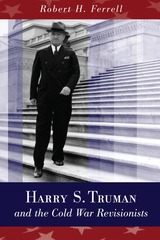
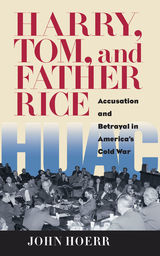
John Hoerr tells the story of three men—his uncle, Congressman Harry Davenport, union leader Tom Quinn, and Father Charles Owen Rice—whose lives became intertwined during the anti-Communist witch hunts of the McCarthy Era. The story helps illuminate one of the more repressive periods in American history, when thousands of Americans guilty only of enlisting in leftist causes were caught up in dragnets cast by overzealous Communist hunters on behalf of the House Un-American Activities Committee and other bodies. Much has been written about well-known cultural figures (the Hollywood Ten), and prominent writers (Arthur Miller and Lillian Hellman) who contended with HUAC. Hoerr tells of mostly ordinary Americans who were largely unknown at the time, but whose stories are nonetheless remarkable.
Writing from personal experience with the title characters, as well as archival research, Hoerr recreates the events of the 1949 HUAC hearings, where rigged testimony by a few workers cast suspicion on their union brothers. The results would echo through the years, causing people to lose jobs, marriages, and self-respect. Hoerr traces the paths followed by Harry, Tom, and Father Rice and relates their individual experiences to the great conflict between anti-Communist and Communist forces in the American labor movement, leading to the eventual demise of the CIO (Congress of Industrial Organizations).
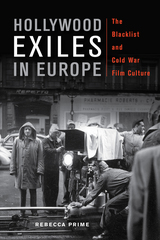
Rebecca Prime documents the untold story of the American directors, screenwriters, and actors who exiled themselves to Europe as a result of the Hollywood blacklist. During the 1950s and 1960s, these Hollywood émigrés directed, wrote, or starred in almost one hundred European productions, their contributions ranging from crime film masterpieces like Du rififi chez les hommes (1955, Jules Dassin, director) to international blockbusters like The Bridge on the RiverKwai (1957, Carl Foreman and Michael Wilson, screenwriters) and acclaimed art films like The Servant (1963, Joseph Losey, director).
At once a lively portrait of a lesser-known American “lost generation” and an examination of an important transitional moment in European cinema, the book offers a compelling argument for the significance of the blacklisted émigrés to our understanding of postwar American and European cinema and Cold War relations. Prime provides detailed accounts of the production and reception of their European films that clarify the ambivalence with which Hollywood was regarded within postwar European culture. Drawing upon extensive archival research, including previously classified material, Hollywood Exiles in Europe suggests the need to rethink our understanding of the Hollywood blacklist as a purely domestic phenomenon. By shedding new light on European cinema’s changing relationship with Hollywood, the book illuminates the postwar shift from national to transnational cinema.

This book analyses the causes of armed conflicts in Southern Africa during the Cold War. It examines the influence of the various external forces in the region during this period and their relationship to local movements and governments.
The book focuses on states experiencing violent internal conflict and foreign intervention, that is Angola, Mozambique, Namibia , South Africa and Zimbabwe.
The author provides an unique history of the key part that the Soviet Union played in these developments. Spanning 30 years, the book explores how each country struggled for genuine independence against colonialism and apartheid and their place in the wider conflicts encompassed by the Cold War.
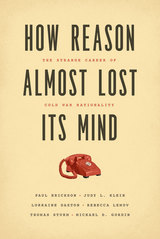
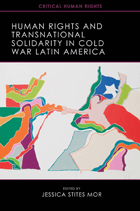
Edited by Jessica Stites Mor, this book offers fine-grained case studies that show how Latin America’s re-emerging Left transformed the struggles against dictatorship and repression of the Cold War into the language of anti-colonialism, socioeconomic rights, and identity.
READERS
Browse our collection.
PUBLISHERS
See BiblioVault's publisher services.
STUDENT SERVICES
Files for college accessibility offices.
UChicago Accessibility Resources
home | accessibility | search | about | contact us
BiblioVault ® 2001 - 2024
The University of Chicago Press









